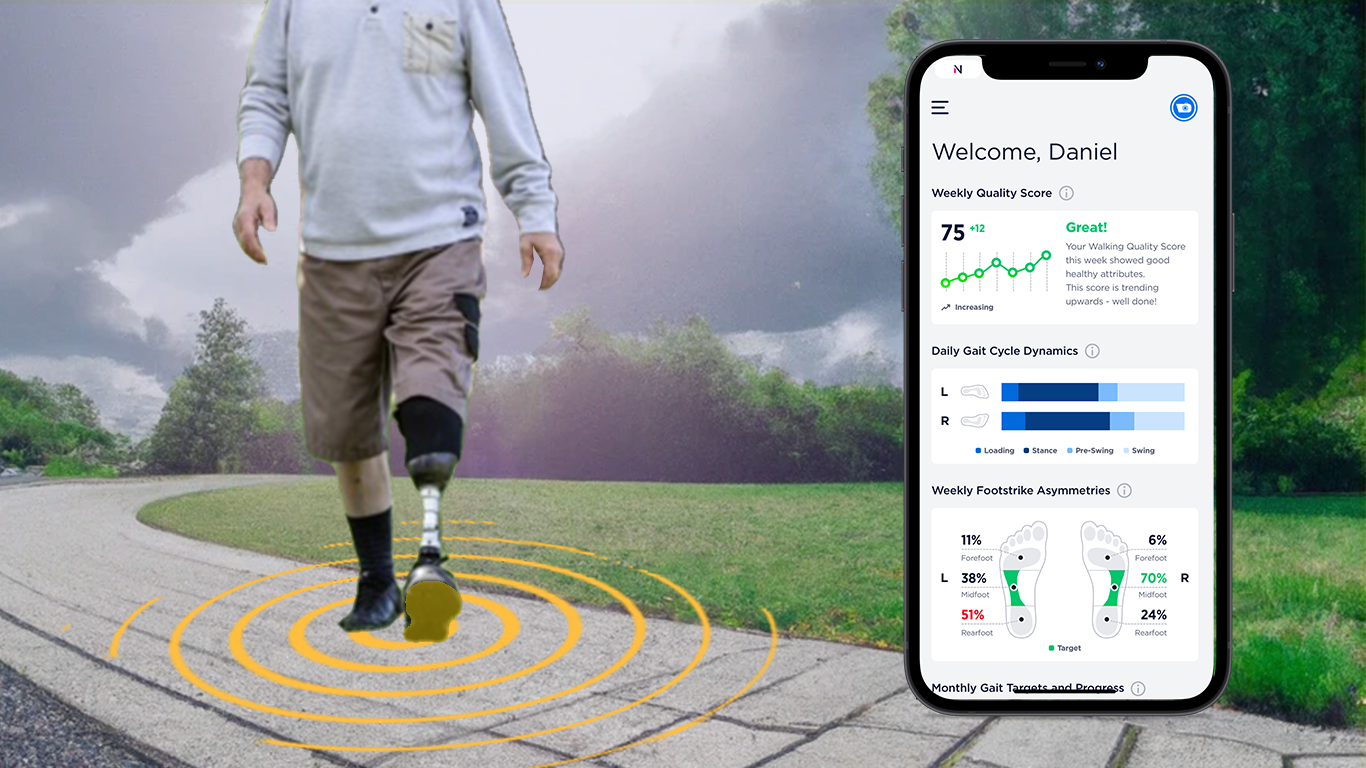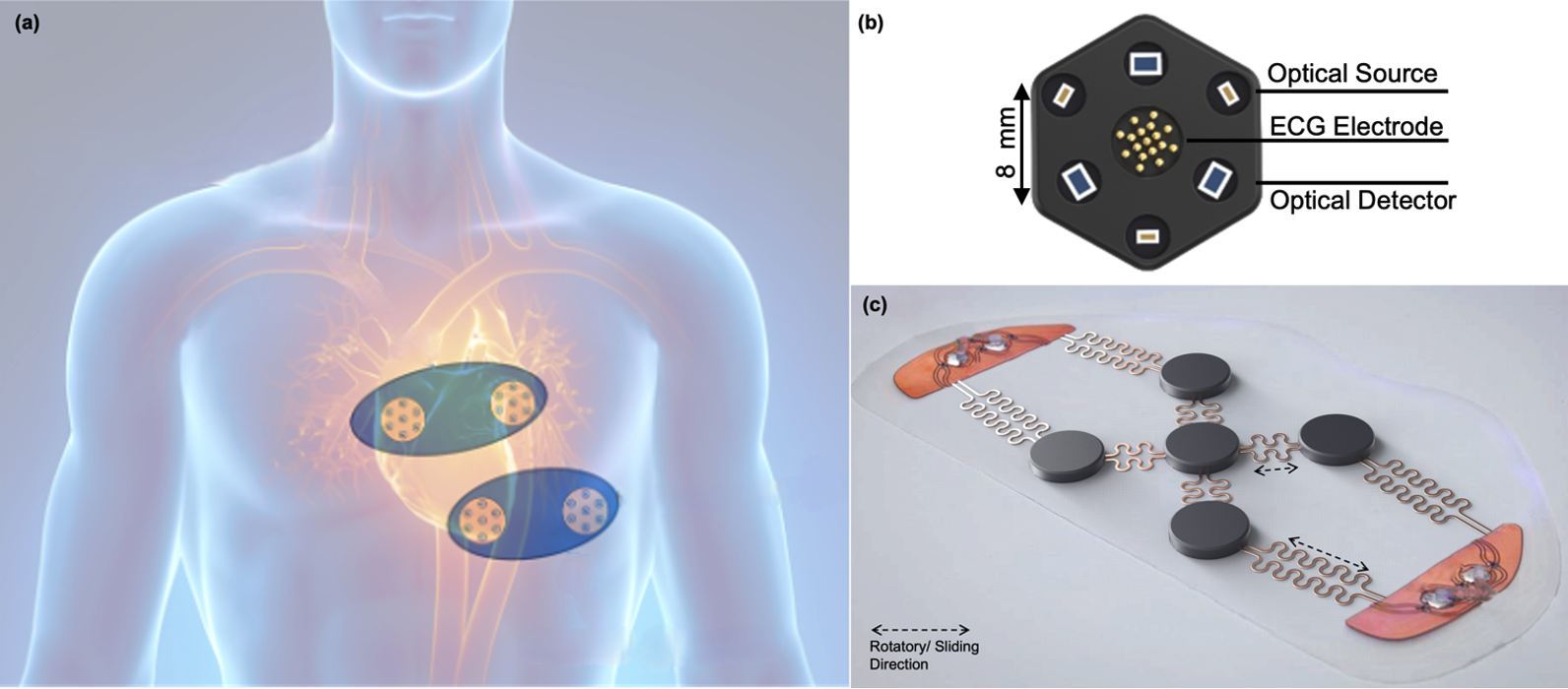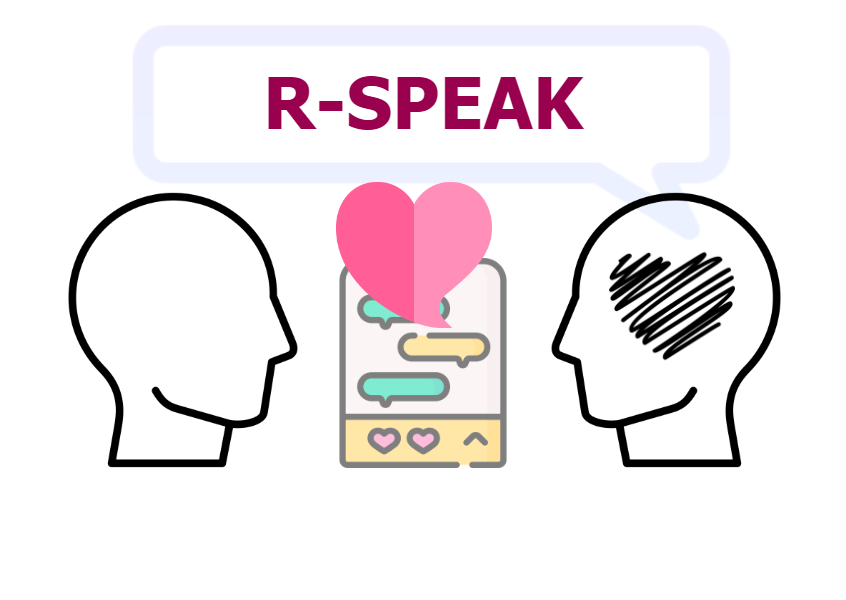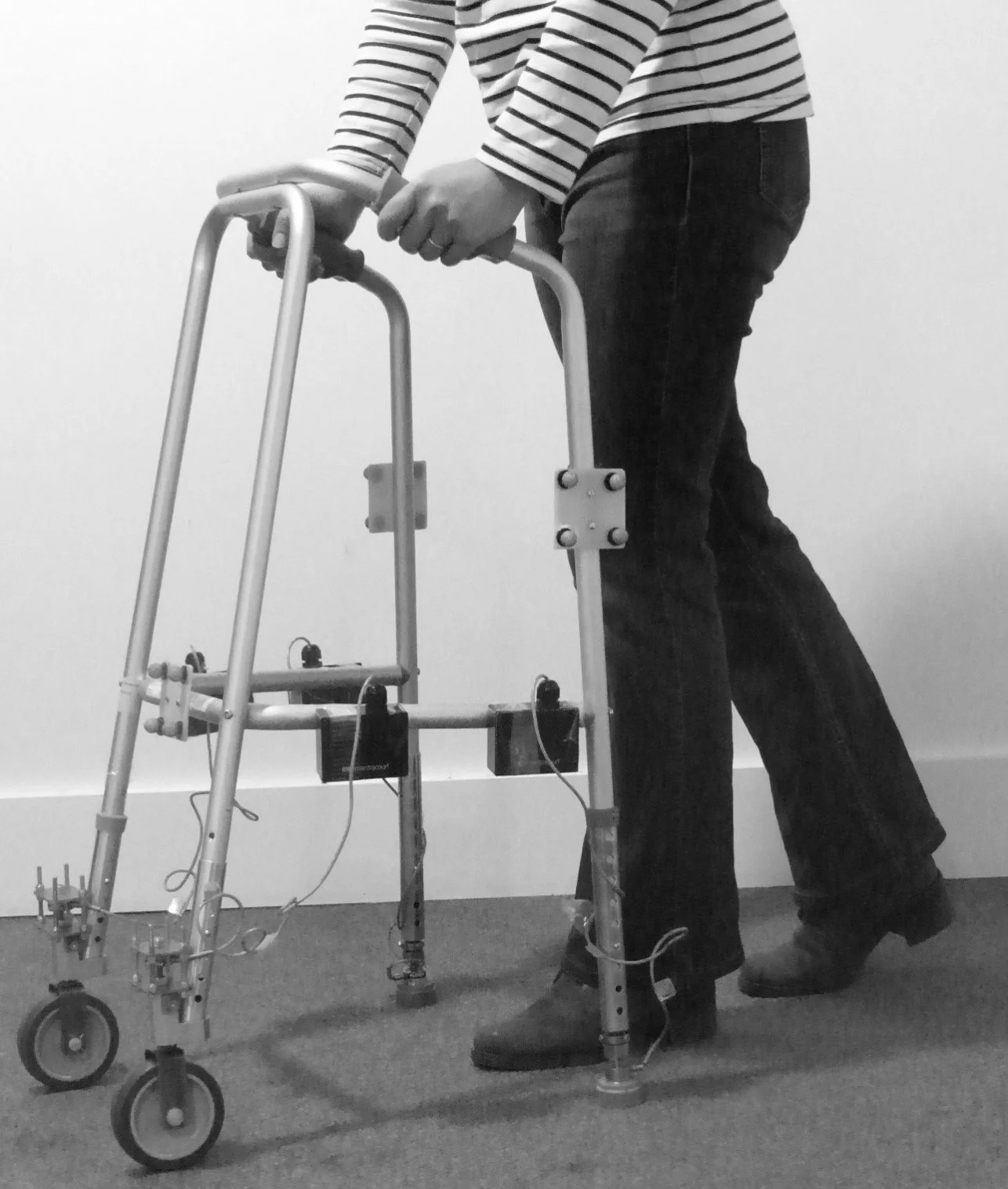
Funding projects to deliver better rehabilitation and improved outcomes.
Our funded projects.
-

Huiru (Jane) Zheng - Ulster University
AI-empowered Mobile Application System for Amputee Gait Training and Assessment
This feasibility study aims to create and assess an AI application using smart insoles, specifically designed to address weight asymmetry issues in lower limb prosthetic gait training. The application will be co-designed with therapists and clients to provide personalised real-time feedback during rehabilitation. This research hopes to improve rehabilitation outcomes.
Links
-

Pasindu Lugoda - Nottingham Trent University
Texo-Skeleton: transforming everyday clothing into self-adaptable exoskeleton for musculoskeletal rehabilitation.
This project will co-develop an unobtrusive musculoskeletal rehabilitation system utilising smart yarns that integrates seamlessly into everyday clothing. The Texo-Skeleton will use a sense-act framework to provide different levels of support, resistance, and assistance based on individual needs. It will allow patients to get an accessible, continuous, and individualised rehabilitation.
-

Hubin Zhao - University College London
Wearable multimodal imaging and monitoring technology for cardiac functional assessment.
This project aims to develop a new-generation, wearable, modular, multimodal imaging and sensing technology, providing effective, regular, long-term monitoring of cardiac function in any environment. Sophisticated high-frequency optoelectronics and advanced wearable electronics will be utilised to construct a high-resolution high-accuracy imaging array with high wearability and patient comfort.
-

Sam Winter - Loughborough University
Non-invasive breathing pattern assessment, monitoring and retraining.
Breathing pattern disorder has frightening symptoms, yet currently there is no objective method for its diagnosis and monitoring. This project will develop the basis for a smartphone app for use in clinics to screen and monitor disordered breathing patterns, and work with patient and clinician groups to identify key requirements.
-

Abdel-Karim Al-Tamimi - Sheffield Hallam University
R-SPEAK: Revolutionizing Speech Enhancement in Aphasia Using Knowledgeable-AI
R-Speak project aims to address communication challenges faced by individuals with mild to moderate expressive aphasia, hindering their participation in rehabilitation and daily activities. This impairment often leads to social isolation, depression, and reduced quality of life. The innovative solution leverages recent advancements in natural language processing (NLP), specifically large language models (LLMs). The project employs cutting-edge technology to improve speech intelligibility. This pioneering approach has the potential to transform communication for individuals with expressive aphasia, revolutionizing treatment and rehabilitation in this field.
Links
-

Anirban Dutta - Lincoln University
Co-production of a platform technology for VR biofeedback training under operant conditioning for functional lower limb weakness
This project aims to co-create a biofeedback technology platform using virtual reality gaming and haptic feedback to rehabilitate individuals with functional lower limb weakness. The goal is relearning of subjective sense of control of the affected limb for improved movement performance in virtual reality tasks. This involves jointly developing and implementing the proof-of-concept platform with the aim of de-risking biofeedback technology development for "implicit learning" through co-production and usability study.
Links
-

Sibylle Thies - University of Salford
Can objective stability assessment of walking aid use outside the clinic facilitate stroke rehabilitation?
This project takes a first step to develop an appropriate sensor set and algorithms with which to quantify stability, variability in usage, and changes in suitability. Activity monitors, pressure sensors and threshold algorithms will be used to provide key insights in usage between reviews with clinicians. This project will seek patients’ perspectives and clinicians’ expertise in evaluating device suitability to co-create the study criteria and monitoring outputs.
